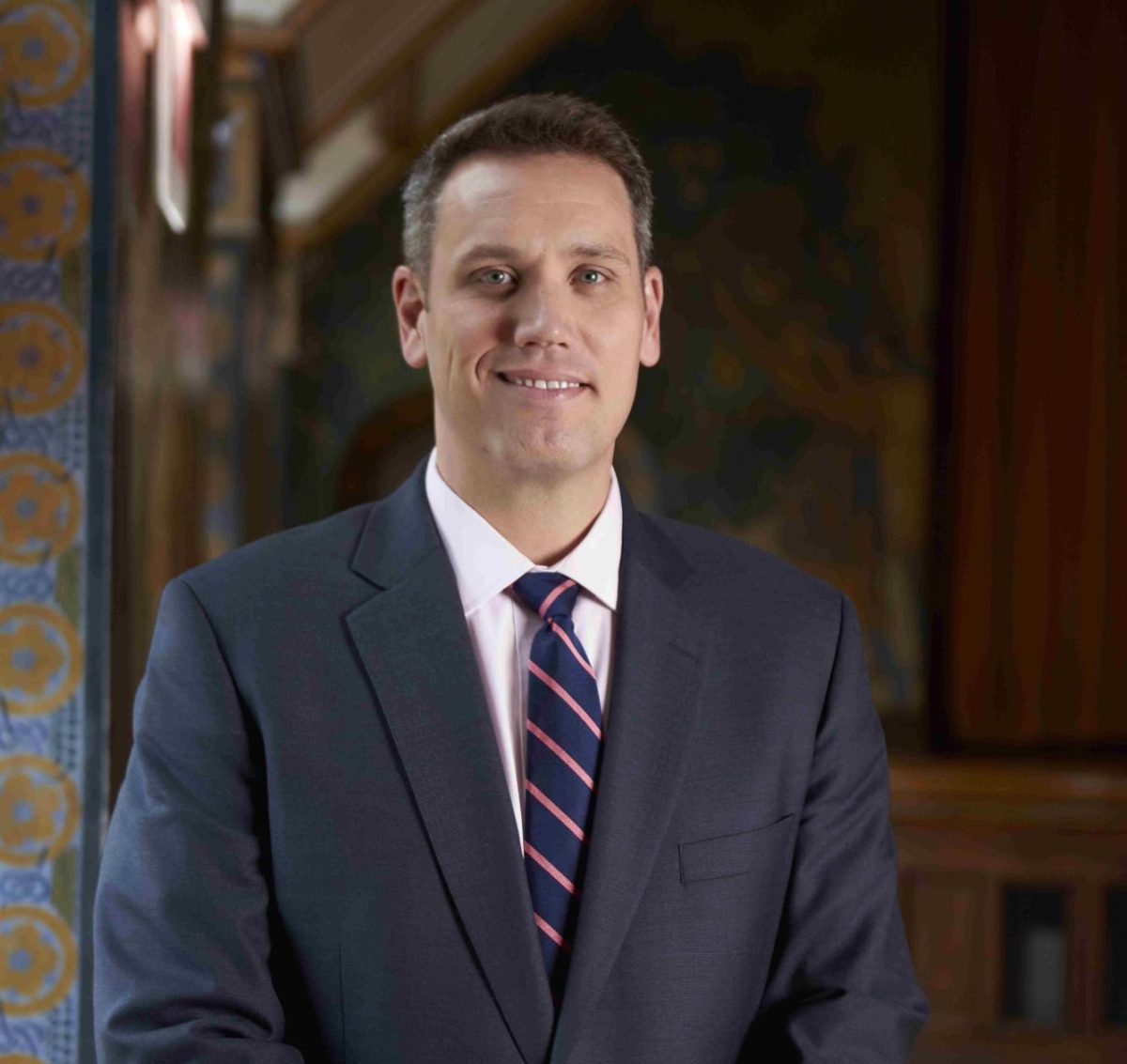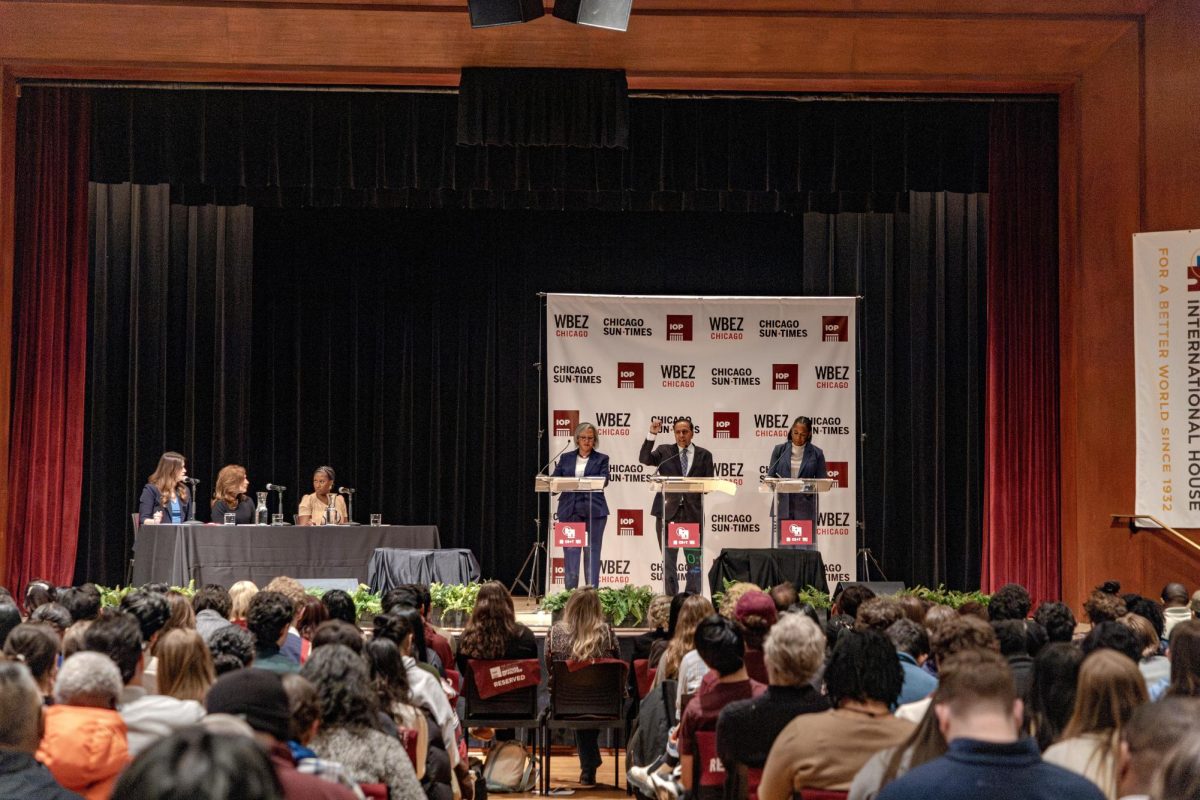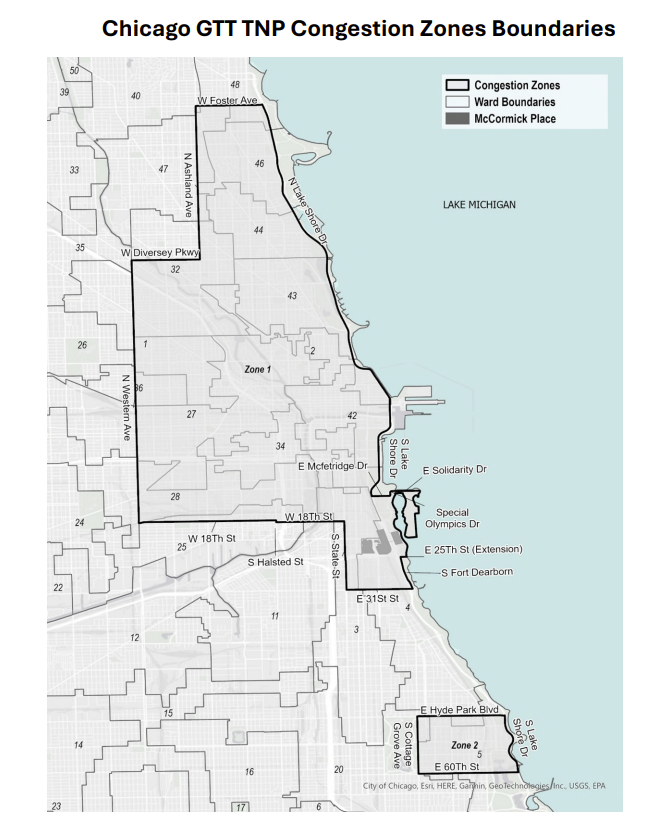In an interview with The Maroon, Associate Vice President for Safety and Security Eric M. Heath discussed recent initiatives in campus safety and transportation undertaken by the Department of Safety and Security (DSS). Heath also addressed the University’s security notification system and the University of Chicago Police Department’s (UCPD) involvement in arresting student protestors on November 9.
Campus Safety Improvements
According to Heath, UCPD’s resources are spread across three geographic areas: the University campus, the Medical Center campus, and an Extended Patrol Area which stretches from East 37th Street to East 65th Street, bounded by Washington Park on the west and Lakeshore Drive on the east. Heath described the off-campus jurisdiction as a “supporting patroller responsibility in this huge extended patrol area which geographically dwarfs most, if not all, private institutional patrol areas.”
In terms of recent changes in crime rates around campus, Heath is cautiously positive. “Crime is cyclical. There are a lot of reasons that it goes up or down on a year-to-year basis. But what I can tell you is, if you compare our past initiatives to what we’re doing right now, it has significantly changed,” Heath said. “Through today, in 2024, we have seen in our patrol area pretty sizable reductions in some of the violent crime.”
He attributes these reductions to ongoing initiatives to improve UCPD’s capacity. “Since 2021, we have more police officers on the street; we have significantly more security presence in and around our campus, as well as in our extended patrol area,” Heath said.
Staffing changes are a central part of the DSS’s improvement strategy. “For years, in our staffing mode, we have just been idly focused on this core group of police officers and security… but we really hadn’t looked at the staffing model and adapted it to address [challenges in] those core three areas,” Heath said. “What we are really focusing on is increasing our police staff.”
The Medical Center campus is a particular target for these expansions. The DSS recently created a designated precinct with additional police department leadership and staffing in the Children’s Hospital and the Adult Emergency Room Department. These staff increases allow UCPD to “address some of the daily challenges of the hospital without really drawing away from the extended patrol area or the University campus over the next few years.” Heath suggests that additional expansion of the medical center coverage is possible, depending on “budgetary needs” and “what [UCPD feels] is appropriate in the hospital area.”
In the extended patrol area outside of UCPD’s primary responsibilities, Heath foresees a mild increase in staffing. “Rather than doubling our policing in the extended patrol area, we were actually focusing more on building for the medical center precinct, and then increasing our Community Safety Ambassadors in the extended patrol area,” Heath said. Campus Safety Ambassadors are security officers that the University contracts from Allied Universal Security, a private security and staffing provider.
Pay and benefits for these staff increases are negotiated through the UCPD officers’ union.
Other than staffing, technology is another focus of UCPD’s initiatives. The University’s campus already has an established surveillance system, with “thousands of cameras and license plate readers” monitored by UCPD. However, these strengths are not reflected in the surrounding area. “The problem off-campus has been that there really is a lack of technology,” Heath said.
Heath held conversations with local aldermen and the City of Chicago to address these shortages. Subsequently, the University has donated an unspecified amount of money to the City of Chicago to increase camera and license plate reader coverage in UCPD’s extended patrol area.
Alongside infrastructural improvements, Heath mentions the opportunity for more cooperation between UCPD and the Chicago Police Department. “And as a result of a newly executed Memorandum of Understanding with those two agencies, DSS and the City of Chicago actually have direct connections,” Heath said. “For the public-facing cameras, we have the ability to share that intelligence and monitor some of that intelligence in real time.”
Existing technologies may also be optimized for new strategic directions. “One of the initiatives was really to add some staff to actively monitor the technology. In the past, we were using technology reactively rather than proactively and being able to drive intelligence to the field,” Heath said.
Email Notification System
Under the Cleary Act, the University is legally required to inform members of the University “in the event of a significant emergency or dangerous situation on campus involving an immediate threat to the health of students, faculty, staff, postdoctoral researchers, or other academic appointees.” DSS distributes these notifications using the University’s cAlert system, and subscription to these email alerts is mandatory for all members of the campus community, including students, staff, faculty, and other affiliates.
Prior to 2018, the University used the same cAlert system to report a subset of off-campus crimes deemed “relevant in some way to the community,” according to Heath. The system was integrated in such a way that off-campus alerts couldn’t be separated out from the required security alerts. Thus, every member of the University received email notifications of select off-campus crimes.
“When I took over in 2016, you would not believe the amount of negative feedback [from people] who were force-fed information about off-campus crime… We had a lot of people [who] complained about it and begged to be taken out of it. But I couldn’t because the two systems were joined up.”
In response to such feedback, DSS introduced an opt-in system in 2018. Rather than reporting a “subjective” subset of off-campus crimes, Heath explains that the opt-in system reports “all of these crimes that fall under certain categories that are reported to the UCPD in the extended patrol area.” Additionally, students can opt into a Daily Crime Bulletin that summarizes all serious crimes reported that day. DSS has also continued to maintain a crime log on their website, as mandated by the Cleary Act.
In addition to its voluntary structure and expanded coverage, the opt-in system focuses more on distributing “patterns of information.” Heath believes that this shift is beneficial. “When you have patterns, you can give a better and more distinct modus operandi, you can give a little more distinct information about the potential vehicles that’s being used in relation to these patterns.”
Heath acknowledges that the email notification system may undergo some improvements in the coming years. “We are still under discussion about whether or not we will change those parameters or change the modality in which we send out that information.” Nevertheless, the fundamental structure of the opt-in system for off-campus crimes is unlikely to change. “[We want to] make sure that we’re giving people the choice of what they get, rather than force feeding it to them,” Heath said.
While discussing the security alert system, Heath highlighted how the dissemination of information often influences public sentiment about campus safety. “We had a lot of people talk about how bad October was in 2023… but when you compare robberies in 2023, we really weren’t very much different than 2017. So what really has changed over the last 10 years is how much information is available to people,” Heath said.
Transportation
When the University first launched the Lyft RideSmart Program in 2021, Heath envisioned it as “a late-night complement for the time of day when shuttles really weren’t being ridden very much, and it was costing the University a lot of money per shuttle.”
However, the popularity of such a service soon became clear to Heath. “[After] getting a lot of student feedback around how successful and how well liked a point-to-point service is, we all agreed that having a myriad [of] options for transportation was the right thing to do.”
Confirming that a point-to-point service is here to stay, Heath explained that the DSS has been exploring alternative providers to Lyft.
A primary motivation behind this switch is the high cost of the current program. “Because we don’t charge students a transportation fee like some schools do, our transportation budget is somewhat limited. And you can imagine the cost and expense of a single occupancy ride, for about $10 a ride, offering that to 17,000 students,” said Heath.
Via has emerged as a likely candidate for this replacement. Heath explained that a switch to Via would provide more benefits and freedom to students by removing the current limit that restricts users to seven Lyft rides per month. Heath praised Via’s successful collaborations with municipality public transportation systems and other universities, including Harvard, Columbia, and Northwestern.
Moreover, Via would address environmental concerns about the Lyft program’s “dependency on single-occupancy vehicles.” “[Via] is an opportunity to move away from single occupancy, so they’d still be a shared ride system, but with small passenger vans or larger SUVs rather than 30-passenger shuttle systems,” said Heath.
Via will also allow the DSS to hire more drivers, which aligns with the University’s mission to bolster local economic opportunity. “With Lyft, there’s no guarantee that your drivers will come from a local area. And our president, our leadership, was very passionate about whatever kind of contracts we’re bringing as a university, that we’re having a positive impact on the local communities,” said Heath. “The beauty of something like Via is that they will work with us and work with the University on its hiring goals and hiring in the South Side community.”
While no final decision has been made, Heath suggests that any change would be made late in the summer in preparation for fall 2024. “The beauty of [Via] is that it is hugely flexible, it can be set up in a variety of different ways,” Heath said. “Assuming that we go with a solution like Via, we will make sure that we’re engaging with the students and the users so that we’re getting feedback about what students would want from it.”
In addition to a point-to-point car service, Heath also expressed the DSS’s commitment to improving other campus transportation options, such as the UGo shuttle system. While he acknowledges student feedback about reducing the lengthy wait times between shuttles, he believes that “the problem with that is the ridership really doesn’t support that. And in fact, since the pandemic, we’ve actually lost ridership in the shuttle system.”
Nevertheless, the DSS is working with an independent transportation expert company to explore how they could enhance services or structurally change routes. Due to planning, logistical, and communication challenges, these improvements would take until fall 2025 to implement.
“A lot of these things take a long time. Especially with public transportation, you might imagine between supply chain issues or just hiring the right people, these are not overnight solutions. So we were very upfront with leadership and with anybody that would ask that these are multiyear phased-in projects and solutions to enhance the overall public safety system that we have,” Heath said.
Arrest of Protestors on Campus
Although the DSS’s main responsibilities fall under safety and transportation, they also assist the University in monitoring campus protest activities. On November 9, 2023, UCPD arrested 28 protestors from UChicago United for Palestine (UCUP), who were engaged in a sit-in at Rosenwald Hall to call for divestment of the University’s investments from weapons manufacturers supplying Israel.
According to Heath, UCPD had the right to arrest the protestors under University policies and procedures. “The reality is it was disruptive conduct that violated our policies and procedures. Those individuals were given every opportunity to leave throughout the day, and once it was determined that the building was closed for normal business, the University leadership made that decision,” Heath said.
Heath was asked about why that intervention differed from the decision to allow student protestors affiliated with #CareNotCops to stay overnight in UCPD’s headquarters in Drexel Hall in 2020. “The reason that distinction was made was that during the time of Covid, Drexel [Hall] had no occupants other than police. And it really wasn’t much of a disruption. So the decision was made by University leadership at the time that we will allow this to continue, given the circumstances, and given what was being demonstrated against. Fast forward to 2023, and the circumstances are quite different in the fact that everybody’s back to full operations.”
DSS maintains a crime log on their website. Students can also opt into a Daily Crime Bulletin that summarizes all serious crimes reported that day. Additionally, The Maroon has launched a UCPD Incident Reporter, which aims to “paint a more nuanced picture of incidents reported to UCPD and highlight any patterns that may exist within the incident data.”
Members of the community are welcomed to submit comments and feedback to the Public Safety Advisory Council through this form. “We always appreciate feedback,” Heath said.















